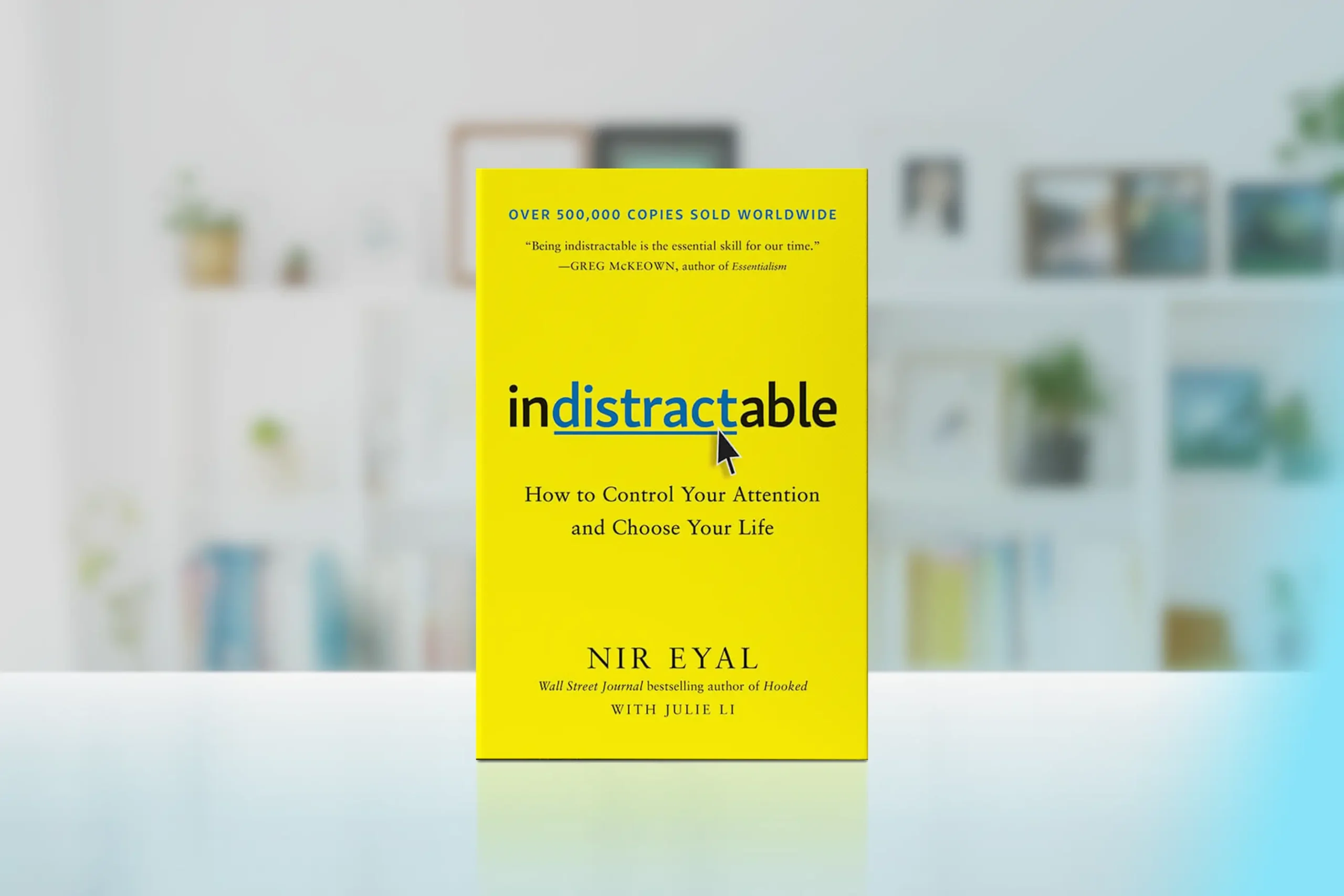We all crave approval. But here’s the uncomfortable truth: that hunger can hijack your life. When you stop seeking approval, you free yourself from performing, people-pleasing, and constantly second-guessing who you are. The courage to be disliked isn’t about being rude or shutting others out—it’s about prioritizing what truly matters to you, even when others don’t understand.
Inside this article:
TL;DR
Seeking approval hijacks your life. Instead, build your life around your core values and carefully choose whose opinions matter. This requires releasing the need for universal validation, setting boundaries without guilt, and taking small acts of authenticity consistently. Over 90 days—foundation, momentum, and integration—you can rewire your brain to prioritize what truly matters. Freedom comes from being undeniably you, not from being universally liked.

1. Why We’re Wired to Need Approval
Humans evolved in tribes where belonging meant survival. Your ancestors learned that acceptance equaled safety, shelter, and food. That ancient wiring is still running in your brain—which is why rejection stings so intensely, even in contexts that have nothing to do with actual danger.
The problem? Our survival mechanism has mutated into people-pleasing. We smile when we’re angry. We say yes when we mean no. We measure our worth by fleeting reactions from people who barely know us.
According to research, our brains treat social rejection similarly to physical pain. This isn’t a character flaw—it’s neurobiology. But understanding this helps you rewire it.
Key Takeaway: Your need for approval is ancient programming, not a life sentence. Recognizing this biological reality is the first step toward freedom.

2. The Hidden Cost of People-Pleasing
Every yes to something misaligned is a no to something meaningful. This is where most people lose themselves—one small compromise at a time.
When you chase approval, you’re essentially letting other people’s opinions become your GPS. And here’s the brutal reality: you’ll never satisfy everyone.
| Cost of Approval-Seeking | Real Consequence |
|---|---|
| Energy wasted justifying choices | Burnout and resentment |
| Decisions based on fear, not values | Wrong career, wrong relationships |
| Constant anxiety about judgment | Chronic stress and poor health |
| Loss of authentic relationships | Connections based on false self |
| Compromised integrity | Self-respect erodes over time |
In “The Courage to Be Disliked”, Ichiro Kishimi and Fumitake Koga call this “the feedback loop from hell”—you feel bad about feeling bad, anxious about being anxious, stuck caring what others think. The more you chase approval, the more anxious you become, and anxiety makes you chase approval more.
Key Takeaway: People-pleasing isn’t generosity—it’s a debt you pay to your own regret. The emotional and practical costs are too high to ignore.

3. Redefining What “Being Liked” Actually Means
Here’s a counterintuitive insight: you don’t get to control what others think of you. Kishimi and Koga introduced the concept of “separation of tasks,” and it’s transformative.
- Your task: Live according to your values and principles.
- Other people’s task: How they respond. Their approval or disapproval belongs to them—not you.
When you stop confusing the two, something shifts. You realize that trying to manage other people’s opinions is like trying to hold water in your fist—the harder you squeeze, the more it escapes. Being “liked” isn’t about being agreeable or performing for comfort. It’s about being real. The people who resonate with your authenticity will find you. Those who don’t? They were never your true audience.
This aligns with research on authenticity and well-being. According to studies, people who live authentically report higher life satisfaction, better relationships, and greater resilience.
In our article Common Myths About Finding Your Purpose, we explore these misconceptions in detail. The truth is, purpose is far more flexible and multifaceted than many people realize.
Key Takeaway: Real likeability comes from authenticity, not agreeableness. When you stop performing, the right people naturally gravitate toward the real you.

4. Building Courage Through Small Decisions
Courage isn’t something you’re born with—it’s a skill you build through repetition. It starts with micro-moments where you choose yourself over comfort.
Think of courage as a muscle. Right now, it might be weak. That’s fine. Every small act of alignment strengthens it. Your job is to practice consistently.
Where courage starts:
- Speaking up in a meeting when your instinct says to stay quiet
- Declining an invitation without over-explaining
- Sharing an unpopular opinion with someone you respect
- Setting a boundary with someone you care about
- Admitting what you actually want, instead of what you think you “should” want
These aren’t dramatic gestures. They’re micro-moments that compound. Each time you choose authenticity over approval, you reinforce the neural pathways for courage. You prove to yourself that disapproval doesn’t destroy you.
To strengthen this practice, explore Building Resilience: Bouncing Back from Life’s Challenges to understand how these small acts build long-term emotional strength.
Key Takeaway: Courage is built through repeated small choices, not dramatic acts. Each micro-moment of authenticity strengthens your capacity for bigger ones.

5. How to Say No Without Guilt
This is where approval-seekers struggle most. Saying no feels selfish. It triggers guilt. Your brain floods with worry about what others will think.
But here’s what’s true: saying no to the wrong things is saying yes to what matters. Every boundary you set protects what’s sacred to you.
The three elements of a guilt-free no:
- Be clear. “I can’t do this” is far better than making excuses. Excuses invite negotiation, debate, and doubt. Clarity ends the conversation decisively.
- Be brief. Don’t over-explain your reasoning. Over-explaining signals you’re not fully confident in your decision and opens the door to unnecessary persuasion.
- Be kind. You can decline firmly while still being genuinely warm. “I appreciate you thinking of me, and I simply can’t take this on” is both honest and deeply respectful.
Practice this: “No, that won’t work for me” and then stop talking. Silence is uncomfortable. That discomfort is where courage lives.
For deeper insight into this, see The Importance of Setting Boundaries for Personal Wellbeing, which explores how boundaries actually strengthen relationships, not damage them.
Key Takeaway: A clear, brief, and kind no protects your energy and integrity. Guilt fades, but regret can linger if you don’t set boundaries.

6. The Long-Term Benefits of Living Authentically
When you stop performing for approval, everything in your life begins to shift—your mindset, your relationships, and your priorities. It doesn’t happen overnight, but the changes are noticeable and measurable over time.
What changes:
- Emotional resilience. You stop riding the rollercoaster of other people’s opinions. Criticism becomes information, not identity.
- Authentic relationships. You attract people who value the real you, not the edited version. These connections run deeper and last longer.
- Freedom and focus. You gain absolute clarity about what matters. Your energy flows toward what actually aligns with your values, not what looks good to others.
- Self-respect. Every time you honor your values, you reinforce the belief that you’re worth respecting. This compounds into genuine confidence.
- Purposeful living. You start making decisions based on what you actually believe, not what garners applause. Your life becomes yours.
Research on intrinsic vs. extrinsic motivation shows that people motivated by internal values (autonomy, mastery, purpose) report greater happiness and fulfillment than those chasing external approval (money, status, others’ opinions).
Key Takeaway: Authenticity compounds into resilience, real relationships, and lasting fulfillment. The trade-off of temporary disapproval is worth the payoff of genuine peace.

7. Approval vs. Values
Many people spend their lives chasing approval—seeking validation from others, trying to meet external expectations. This often leads to stress, indecision, and a sense of emptiness. A more sustainable approach is to focus on values-based living rather than external validation.
Values-Based Living Over Goal-Chasing
Goals are outcomes—you reach them and then what? Values are the guiding principles for how you live. By building your life around authentic values instead of seeking approval, disapproval loses its power. You’re no longer performing for others; you’re tackling meaningful challenges that truly matter to you.
Selective Caring: Your Most Limited Resource
Your emotional energy is finite. The key isn’t to care less about everything—it’s to choose deliberately what deserves your attention. Rejecting things that don’t align with your values frees your mind and creates clarity about what truly matters.
Problems Worth Solving
Meaningful living doesn’t come from avoiding discomfort or chasing fleeting happiness—it comes from solving problems that matter. When your efforts align with your values, criticism and disapproval fade into the background because your focus is on real work, not pleasing others.
Vulnerability & Authenticity
You don’t need to pretend to have it all figured out. Growth happens in struggle, imperfection, and uncertainty. Accepting discomfort and embracing vulnerability allows you to act authentically—even if it means risking being disliked.
The Complete Framework:
- Define your values (not goals, not what others expect you to value)
- Consciously choose what matters and reject everything else
- Solve real problems aligned with your values
- Accept discomfort—it signals meaningful progress
People who seem unshakeable aren’t emotionally numb—they’ve simply decided in advance what deserves their worry and what doesn’t.
For a deeper exploration of this philosophy, see The Subtle Art of Not Giving a F*ck by Mark Manson.
Key Takeaway: Build your life around your values, not around approval. When your foundation is solid, other people’s judgments become noise.

8. Authentic Living Action Plan
Learn how to show up as yourself, not the version you think others will accept, and watch life start to feel lighter, more honest, and fully your own. This framework takes you from approval-seeking to living authentically in just 90 days
Days 1-30: Foundation
Discover your core values and prove to yourself that small acts of authenticity don’t lead to catastrophe.
Week 1-2: Identify Your Values
Write for 10 minutes on each: What truth am I avoiding? Whose approval am I chasing? What are my three core values?
Week 3-4: One Small Act Per Week
Pick micro-acts of authenticity:
- Week 3: Decline something without over-explaining
- Week 4: Share an opinion you’ve been holding back
Notice anxiety beforehand. Notice it fades after. This is proof disapproval doesn’t destroy you.
Key Takeaway: You have clarity on your values and evidence that authenticity is survivable.
Days 31-60: Building Momentum
Expand your boundary-setting, audit whose opinions actually matter, and build evidence that courage compounds into growing confidence.
Week 5-6: Expand Boundary-Setting
Move to 2-3 acts weekly. Increase difficulty:
- Set boundaries with people who matter
- Have one honest conversation you’ve been avoiding
- Wear/share something authentically you
- Stop justifying decisions to doubters
Week 7-8: The “Mark Manson” Audit & Win Tracking
List people whose disapproval bothers you most. Ask: Do they share my values? Are they in my inner circle? Will they matter in 5 years?
For those failing the test, consciously decide their opinion doesn’t count.
Track every win—however small. Document how it felt and whether the feared consequence happened.
Key Takeaway: You’re building evidence that courage compounds. Confidence is rising.
Days 61-90: Integration
Commit to full authenticity in a major life area and build systems that make authentic living your sustainable default.
Week 9-10: Unapologetic Living
Choose one major life area (career, relationships, self-expression) and commit to full authenticity there:
- Career: Have the “what I actually want” conversation
- Relationships: Stop performing the expected version
- Self-expression: Live visibly as your authentic self
Then shift identity: You’re no longer “someone seeking approval”—you’re “someone who values authenticity over comfort.”
Review your wins from the past 60 days. Which acts felt most aligned? Repeat those.
Week 11-12: Build the System
Make authenticity sustainable—don’t rely on willpower alone.
- Set weekly check-ins: Am I living my values or drifting?
- Identify your “approval triggers” (situations where you abandon yourself) and plan responses in advance
- Build community with people who value authenticity
- Revisit Aligning Your Daily Actions with Your Life Purpose monthly
Key Takeaway: Authenticity is becoming your default. You’ve rewired your response to disapproval.
Timeline at a Glance:
| Days | Stage | Outcome |
|---|---|---|
| Days 1-30 | Foundation: Identify values, small acts | Clarity + proof of resilience |
| Days 31-60 | Building: Expand boundaries, audit opinions | Growing confidence |
| Days 61-90 | Integration: Full authenticity, systems | Authenticity is default |
Ongoing: When approval-seeking urges resurface (they will), you’ve proven disapproval doesn’t destroy you. The system keeps you aligned. Authentic living is a practice, not a destination.
Courage as Your Compass
Being disliked doesn’t mean being unkind. It means being honest. It’s the quiet strength to live according to what you believe, to prioritize meaning over popularity.
You’ll always face disapproval. That’s not a sign you’re doing something wrong—it’s often a sign you’re doing something right. The people worth keeping in your life will value the real you. The rest were never your true audience.
So next time you feel torn between pleasing others and honoring yourself, remember: courage isn’t the absence of fear—it’s the decision to act despite it. Choose yourself. Set the boundary. Share the truth. Live the life that’s actually yours.
Freedom and fulfillment don’t come from being universally liked. They come from being undeniably you.
Related articles
The 30 Most Important Things to Do in Your 30s — Discover the critical milestones and mindset shifts that define success during your most pivotal decade.
How to Build a Career You Love: From Vision to Action — Transform your professional life by aligning your work with your values and purpose.
Building Resilience: Bouncing Back from Life’s Challenges — Develop the emotional and mental strength needed to overcome obstacles and accelerate your growth.
Mastering Your Money: Financial Freedom in Every Stage of Life — Create a comprehensive financial foundation that enables the freedom to reinvent yourself.
Authentic Living: Why Comparison is Killing Your Dreams — Stop measuring yourself against others and start building a life that’s genuinely yours.
Overcoming Fear and Doubt: How to Follow Your Own Path — Break free from self-doubt and external pressure to chart your authentic course.
Further reading
Atomic Habits by James Clear — Reveals how small, consistent habits compound into massive transformation over time, directly supporting the article’s emphasis on incremental progress and reinvention.
Start with Why by Simon Sinek — Explores how discovering your deeper purpose fuels motivation and achievement, connecting to the article’s focus on defining values and intentional living.
The 7 Habits of Highly Effective People by Stephen R. Covey — Provides a comprehensive framework for personal effectiveness and reinvention across all life areas covered in the article.
How to Change Your Mind by Michael Pollan — Examines neuroplasticity and our capacity for transformation, supporting the article’s core premise that change is possible at any stage.
The Courage to Be Disliked by Ichiro Kishimi and Fumitake Koga — The philosophical foundation for this entire article—a deep dive into Adlerian psychology and the freedom that comes from releasing the need for approval.
Dare to Lead by Brené Brown — Explores the courage required for vulnerability, authenticity, and living aligned with your values in both personal and professional contexts.





